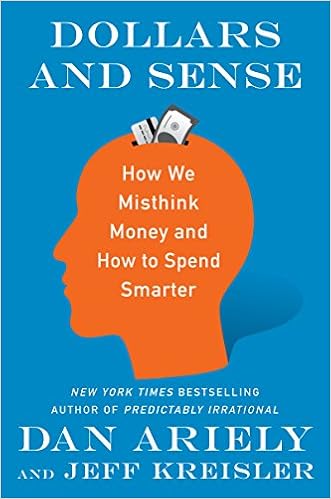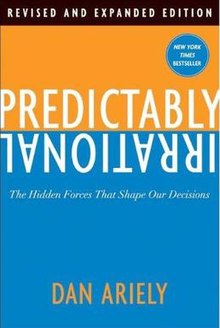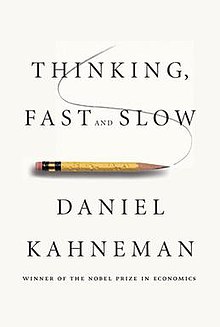Course Information
This year, the course is not split into lectures and seminars. Instead, the course is a series of interactive lectures delivered by a range of international experts.
To complete the course, you need to (all apply):
- attend at least 8 of the first 11 classes
- attend the 12th class where the final projects are presented
- collect at least 30 (out of 50) points for your final Project (see the section dedicated to the Project)
For some classes, we'll ask you to complete a small assignment
beforehand. When this is the case, "attending the class" includes
completing this assignment in time.
We want to see you in classes, therefore there will be attendance checks.
All lectures take place in this MS Teams group. Please use the MS Teams group as a preferred communication channel for the course. Classes start Thursdays 10AM.
Recommended reading for the course
(available either online or in the library):
| The Upside of Irrationality: The Unexpected Benefits of Defying Logic (2011) Irrationality is not all bad. In the Upside of irrationality, Dan Ariely examines some of the positive effects irrationality have on our lives and offers a new look on the irrational decisions that influence our personal lives and our workplace experiences as well as our temptation to cheat in any and all areas. |
 | The Honest Truth About Dishonesty: How We Lie to Everyone--Especially Ourselves (2013) From ticket-fixing in our police departments to test-score scandals in our schools, from our elected leaders’ extra-marital affairs to the Ponzi schemes undermining our economy, cheating and dishonesty are ubiquitous parts of our national news cycle—and inescapable parts of the human condition. Drawing on original experiments and research, in the vein of Freakonomics, The Tipping Point, and Survival of the Sickest, Ariely reveals—honestly—what motivates these irrational, but entirely human, behaviors. |
 | Payoff: The Hidden Logic That Shapes Our Motivations (2016) Every day we work hard to motivate ourselves, the people we live with, the people who work for and do business with us. In this way, much of what we do can be defined as being “motivators.” From the boardroom to the living room, our role as motivators is complex, and the more we try to motivate partners and children, friends and coworkers, the clearer it becomes that the story of motivation is far more intricate and fascinating than we’ve assumed. |
 | Dollars and Sense: How We Misthink Money and How to Spend Smarter (2017) In Dollars and Sense, world-renowned economist Dan Ariely answers these intriguing questions and many more as he explains how our irrational behavior often interferes with our best intentions when it comes to managing our finances. Partnering with financial comedian and writer Jeff Kreisler, Ariely takes us deep inside our minds to expose the hidden motivations that are secretly driving our choices about money. |
Richard ThalerNudge: Improving Decisions about Health, Wealth, and Happiness (2008) Nudge is about how we make these choices and how we can make better ones. Using dozens of eye-opening examples and drawing on decades of behavioral science research, Nobel Prize winner Richard H. Thaler and Harvard Law School professor Cass R. Sunstein show that no choice is ever presented to us in a neutral way, and that we are all susceptible to biases that can lead us to make bad decisions. But by knowing how people think, we can use sensible “choice architecture” to nudge people toward the best decisions for ourselves, our families, and our society, without restricting our freedom of choice. | |
Daniel KahnemanThinking, Fast and Slow Engaging the reader in a lively conversation about how we think, Kahneman reveals where we can and cannot trust our intuitions and how we can tap into the benefits of slow thinking. He offers practical and enlightening insights into how choices are made in both our business and our personal lives―and how we can use different techniques to guard against the mental glitches that often get us into trouble. Topping bestseller lists for almost ten years, Thinking, Fast and Slow is a contemporary classic, an essential book that has changed the lives of millions of readers. |

